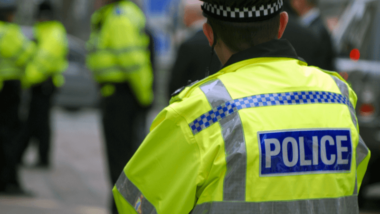A 14-year-old girl is threatening the College of Policing with legal action over its guidance on ‘hate incidents’ in schools.
‘Non-crime hate incidents’ are recorded by the police when a complaint is made by someone who alleges a hate crime has taken place, and are based on the perception of a victim or others, not on evidence. These differ from hate crime offences because no actual crime has been committed.
Police investigating such incidents in schools are told in guidance to keep records of such complaints, even when the incident does not meet the threshold for criminal charges. But the schoolgirl, known in legal documents as Miss B, says this should not be happening and has threatened a judicial review.
Disagreement is not hatred
Guidance published earlier this academic year by the College said that the motivations for a hate incident could include “ill-will, spite, contempt, prejudice, unfriendliness, antagonism, resentment and dislike”.
The College said keeping the non-crime incidents on record is necessary, claiming: “An incident may be the precursor to more serious actions or crime”, although it admitted that “not all incidents will escalate this way”.
At present, hate incidents can show up in criminal record checks later in life, such as those carried out by employers before hiring someone.
Miss B, who has an auditory processing disorder and dyslexia – making her more likely to misunderstand others or be misunderstood – believes biological sex is distinct from gender identity.
Career prospects
She says she respects transgender pupils but does not understand them, and as such is “frightened” about speaking openly in case she is reported for a hate incident, despite having no intention of causing offence or upset.
In the legal letter, her lawyers told the College: “Miss B is concerned about the possibility of having a police record potentially including details of conversations that she has had at school . . . as part of a classroom discussion.
“She is also concerned that this record would impact on her future career prospects if the record was identified by an enhanced DBS check. A consequence of this is that Miss B is inhibited from expressing her views freely within school and from contributing to important class debates on controversial issues.”
The letter also states that including the perception of “dislike” in its vague definition of ‘hostility’ was “alarmingly broad”.
Freedom of speech
It was revealed earlier this year that almost 120,000 hate incidents had been recorded in the first five years since the College of Policing began instructing officers to record them.
The figures came to light as a judge ruled that Humberside Police took unlawful action against a man who opposed transgender ideology online.
A police officer visited Harry Miller’s place of work after receiving a complaint about a ‘transphobic’ tweet, leaving Miller with the impression he could be prosecuted.
In his judgment, Judge Julian Knowles quoted from a previous ruling that: “Freedom only to speak inoffensively is not worth having”.

Police record 120,000 ‘non-crime’ hate cases in 5 years
Now Scot Police under fire for logging ‘non-crime’ hate cases
CPS threatened with fresh legal action over pro-trans bias
CPS pulls hate-crime guidance after legal challenge
Thinking you’ve been excluded counts as ‘hate crime’ says CPS

